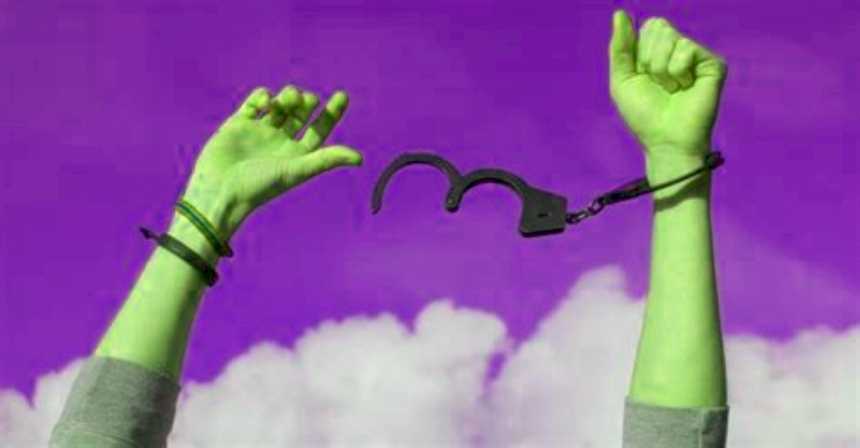
A critical analysis of the history, methods, and controversies in psychiatric practice
Psychiatry, the branch of medicine focused on diagnosing and treating mental disorders, has long enjoyed an aura of scientific authority. Yet beneath the surface lies a complex history marred by controversy, methodological ambiguity, and ethical violations. Can psychiatry truly be considered a science? Or should it be viewed as the modern face of pseudoscience—draped in medical jargon but lacking empirical grounding?
A Dark History: From Lobotomies to Political Abuse
In the 20th century, psychiatry sanctioned and carried out numerous inhumane treatments. Lobotomies—surgically removing parts of the brain to "calm" patients—were performed on thousands, often without informed consent and with devastating effects. Electroshock therapy was administered without anesthesia. Mental asylums functioned more like prisons than places of healing.
In authoritarian regimes, especially the Soviet Union, psychiatry became a tool of oppression. Political dissidents were labeled as schizophrenic or paranoid simply for challenging the system. These individuals were subjected to forced hospitalization, drugging, and social isolation.
Diagnosis Without Biology: A Science Without Tests?
Unlike most medical fields, psychiatry lacks objective diagnostic tools. There are no blood tests, brain scans, or lab results to definitively diagnose depression, schizophrenia, or anxiety. Instead, psychiatrists rely on subjective observations, questionnaires, and behavioral assessments.
The DSM (Diagnostic and Statistical Manual of Mental Disorders), the primary classification guide for mental illnesses, changes disease definitions by committee vote. Homosexuality was considered a mental illness until 1973—repealed not by new scientific findings, but by a political decision. If a disorder can be voted out of existence, can it truly be called a disease?
The Pharmaceutical Machine: Profiting from Pain
Modern psychiatry is deeply intertwined with the pharmaceutical industry. Psychiatric drugs are prescribed at record rates—often with little follow-up and minimal psychosocial support. Antidepressants, antipsychotics, and mood stabilizers are billion-dollar products.
Pharmaceutical companies fund most psychiatric research, shape medical curricula, and influence regulatory bodies. This results in over-medication, drug dependency, and the neglect of economic, social, and existential contributors to mental distress.
Who Defines "Normal"? The Pathologizing of Everyday Life
Psychiatry increasingly pathologizes ordinary human behaviors. Energetic children are labeled with ADHD. Grief becomes depression. Shyness turns into social anxiety disorder. Cultural, personal, and contextual differences are flattened into rigid diagnostic labels.
Who decides what counts as "normal" behavior? Psychiatry often functions as a gatekeeper of conformity, removing the "dysfunctional" from society under the guise of treatment.
Coercion and Human Rights Violations
Forced hospitalizations, physical restraints, and involuntary drugging remain widespread. These practices, justified as necessary for public safety, frequently violate basic human rights.
International human rights organizations, including UN working groups, have called for urgent reform—emphasizing the need for consent-based treatment, alternative therapies, and the abolition of coercive practices in mental health care.
A New Direction: Post-Psychiatry and Psychosocial Models
An increasing number of professionals advocate for a post-psychiatric paradigm—one rooted in empathy, social justice, and contextual understanding. Instead of focusing on symptoms and medication, these approaches emphasize listening, dialogue, and community support.
Therapeutic alternatives like psychotherapy, art therapy, peer support, spiritual practices, and communal living are showing promise. Mental suffering often stems from trauma, inequality, and existential crises—not merely "chemical imbalances."
Conclusion: A Discipline at a Crossroads
Despite its scientific claims, psychiatry faces a deep crisis of methodology, ethics, and legitimacy. While it cannot be wholly dismissed as pseudoscience, its alliance with pharmaceutical interests, reliance on subjective diagnostics, and ongoing human rights abuses demand serious scrutiny.
It is time to envision a new paradigm of mental health—one that honors human dignity, explores social roots of suffering, and heals through compassion and autonomy rather than force and medication.
This article is published on program9.click as part of our ongoing series examining scientific authority, systemic control, and the future of human freedom in the digital and posthuman age.
Next in the series: A deeper dive into the construction of "mental illness" through the lens of biopolitics, surveillance, and transhumanist ideology.